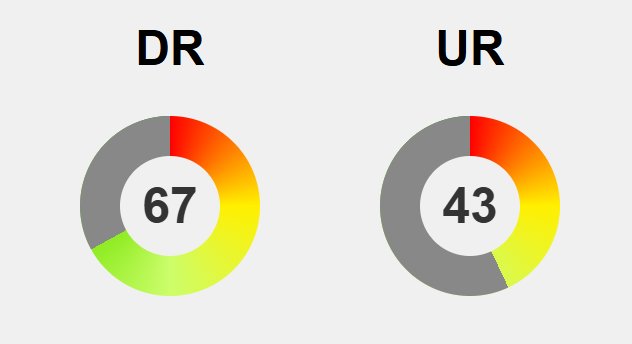What do heroes from vastly different worlds—Odysseus of ancient Greece and Batman of modern Gotham—reveal about the true nature of heroism? Both embody wit, resilience, and moral conviction, yet their motivations and challenges diverge sharply. Odysseus’s journey showcases cunning against mythical monsters and divine wrath, driven by loyalty and love, embodying resilience rooted in duty. Batman’s battles against human villains and inner demons highlight strategic thinking and moral resolve, fueled by trauma and justice. These stories illustrate that heroism isn’t solely about physical strength or divine intervention but about mental agility, sacrifice, and internal purpose. Their contrasting motivations—love and duty—shape their perseverance and responses to adversity. As we delve into their journeys, a compelling question emerges: does heroism fundamentally lie in the character and resilience we carry within, or in the external battles we fight? Both heroes remind us that true bravery combines intellect, sacrifice, and an unwavering sense of purpose.
Heroism Redefined: Odysseus and Batman’s Tales of Resilience and Wit
Heroism isn’t always about superpowers or divine intervention; sometimes, it’s about resilience, cleverness, and conviction. Odysseus from Homer’s *Odyssey* and Batman from modern comics are perfect examples of this broader idea. Their stories span vastly different worlds, yet both showcase how wit and determination can turn the tide against seemingly impossible odds. Odysseus’s long journey home is a testament to strategic thinking and mental resilience, while Batman’s relentless fight for justice highlights the power of intellect and moral resolve.
Despite their different settings, both heroes face challenges that demand more than brute strength. Odysseus encounters mythical monsters, vengeful gods, and dangerous temptations, relying on his wit to outsmart foes and navigate divine wrath. Batman battles human villains, corruption, and his own internal struggles, often using detective skills and technology to stay ahead. Their stories reveal that heroism isn’t solely about physical might; it’s rooted in mental agility, adaptability, and perseverance.
What makes their heroism compelling is how it reflects the values of their respective cultures. Odysseus embodies Greek ideals—loyalty, cleverness, and endurance—showing that heroism involves resilience amid divine chaos. Batman, on the other hand, exemplifies modern virtues—justice, moral clarity, and self-reliance—resonating with a society that values human effort over divine favor. Both figures serve as mirrors of their times, emphasizing that heroism evolves with the stories societies tell about bravery and virtue.
Their journeys remind us that heroism is a dynamic concept. In ancient Greece, divine intervention and mythic destiny played a central role. Today, heroism is more about moral choices, strategic thinking, and inner strength. Odysseus’s triumph depends on his cunning and loyalty, while Batman’s success hinges on his detective mind and emotional resilience. Their stories teach that heroism adapts to the challenges of each era, yet always values resilience, intellect, and moral conviction.
Ultimately, Odysseus and Batman show us that heroism is as much about character as it is about action. They demonstrate that mental agility and unwavering resolve can overcome divine or human obstacles alike. Their stories inspire us to face adversity with courage, wit, and purpose—reminding us that true heroism is rooted in resilience and the strength of conviction, no matter the world we inhabit.
From Myth to Modernity: The Cultural Roots of Odysseus and Batman
The origins of Odysseus and Batman as heroic figures reveal a lot about how societies shape their ideals of heroism over time. Odysseus comes from ancient Greece, where stories filled with gods, monsters, and divine intervention were woven into everyday life. His character emerges from Homer’s *The Odyssey*, embodying traits like cleverness, resilience, and loyalty—values highly prized by the Greeks. His ability to outwit mythical creatures and divine beings reflects a cultural admiration for wit and resourcefulness. Odysseus’s heroism isn’t just about strength; it’s about mental agility, strategic thinking, and perseverance amid divine and mortal challenges alike.
Fast forward to the 20th century, and Batman appears as a modern hero rooted in the gritty world of comic books. Created in 1939, Batman started as a masked vigilante fighting street crime but quickly became a symbol of justice and resilience. Unlike mythic figures, Batman’s story is grounded in human vulnerability, moral complexity, and technological innovation. His heroism relies on detective skills, strategic planning, and advanced gadgets—traits that resonate with a society increasingly driven by innovation and moral ambiguity. Batman’s dark persona mirrors contemporary fears of chaos, corruption, and inner demons, making him a reflection of modern struggles.
Despite their differences, both figures serve as cultural mirrors, embodying the core values of their respective eras. Odysseus’s journey emphasizes loyalty, cunning, and endurance—virtues that reinforced Greek ideals of heroism rooted in divine favor and duty. His story was meant to inspire resilience amid divine caprice and mythical dangers. Batman, on the other hand, symbolizes a society that values justice, moral resolve, and individual effort in a world threatened by human villains and societal decay. His stories highlight that heroism is accessible through intellect and moral strength, not just innate power.
Their stories also reveal how the concept of heroism evolves with cultural shifts. In ancient Greece, heroism was intertwined with divine intervention and mythic destiny. Odysseus’s success was partly attributed to divine favor and cleverness. Today, Batman’s heroism revolves around human agency, moral choices, and strategic thinking. Both demonstrate that heroism isn’t a fixed idea but one that adapts to the values and challenges of the time, reflecting society’s shifting understanding of bravery and virtue.
The mythological roots of Odysseus highlight the importance of mental agility and resilience. His ability to craft plans—like blinding the Cyclops or navigating treacherous waters—illustrates that heroism can depend on cleverness and quick thinking. These qualities were celebrated in Greek culture, where gods and monsters symbolized chaos and divine authority. Odysseus’s triumph depended on his capacity to think strategically under pressure, making him a hero defined by his mind as well as his courage.
Batman’s origins are shaped by a different cultural context—urban chaos and societal flaws. Created during a time of economic depression and conflict, Batman reflects a need for moral clarity and resilience. His reliance on detective skills and technology emphasizes a shift from divine intervention to human effort. His stories underscore that heroism today involves moral resolve, strategic thinking, and confronting human evil head-on. Both heroes show us that heroism is as much about internal strength as external action, rooted in the cultural stories we tell ourselves about bravery and virtue.
Overcoming Impossible Odds: Mythical Monsters and Human Villains
Odysseus’s journey was marked by mythical and divine challenges that tested his wit, resilience, and strategic mind. When he faced the Cyclops Polyphemus, brute force was useless; instead, he devised a clever plan to blind the creature and escape by hiding under the sheep’s bellies. This quick thinking transformed a deadly foe into a manageable obstacle, demonstrating that intelligence can triumph over raw strength. Later, navigating the perilous waters of Scylla and Charybdis demanded difficult decisions and adaptability, emphasizing that flexibility and foresight are vital in overcoming danger. Divine interference, especially Poseidon’s wrath, made his voyage unpredictable, requiring patience and diplomacy. These divine and mythical hurdles underscored a core truth: survival often hinges on mental agility and strategic planning rather than mere physical power.
In contrast, Batman’s challenges are rooted mainly in human villains and internal struggles, adding layers of psychological complexity. His enemies, like the Joker or Two-Face, rely heavily on psychological warfare, forcing him to outthink and outmaneuver them through detective work, advanced technology, and moral resolve. Confronting these villains requires understanding their motives and predicting their next moves—skills Batman has honed through years of experience. Beyond external foes, he grapples with internal demons—trauma, guilt, and moral ambiguity—that threaten his stability. Facing these internal battles demands emotional resilience, often making his victories about mental toughness as much as physical confrontation.
Both heroes reveal that overcoming adversity extends beyond brute force. Odysseus’s success depended on his ability to think quickly and adapt when divine forces and mythical monsters presented seemingly insurmountable threats. His clever plans and unwavering resilience allowed him to survive divine wrath and mythical dangers that would have defeated many others. Similarly, Batman’s victories hinge on detective skills, strategic thinking, and emotional strength. His enemies exploit vulnerabilities in his mind and spirit, making mental resilience the key to his success. Both stories emphasize that heroism involves outsmarting challenges through wit and perseverance, rather than just fighting.
Their internal and external battles highlight a shared trait: resilience. Odysseus’s perseverance through divine punishment and mythical trials exemplifies mental toughness. Even when divine forces conspired against him, he refused to surrender, showing that resilience is essential in the face of overwhelming odds. Batman, confronting personal trauma and the chaos of Gotham, demonstrates a similar resilience—fighting on despite emotional scars and moral dilemmas. Their stories remind us that true heroism requires the strength to endure internal struggles and external threats simultaneously.
The motivations fueling their struggles differ but are equally compelling. Odysseus’s journey is driven by loyalty and love—his desire to reunite with family and reclaim his throne. Each challenge tests his devotion and perseverance, turning setbacks into opportunities for clever solutions. Batman’s internal motivation is rooted in a moral obligation to fight injustice, inspired by the trauma of his parents’ murder. His relentless pursuit of justice is fueled by a sense of responsibility, even when personal sacrifices threaten his well-being. These motivations deepen their resolve, shaping how they approach and overcome obstacles.
Odysseus’s long voyage was driven by a desire to return home, making each challenge a step toward that goal. His loyalty and love gave his hardships meaning, transforming divine punishment into lessons in perseverance. Batman’s battles, on the other hand, are about upholding justice and protecting the innocent. His internal drive pushes him through exhaustion and moral dilemmas, reinforcing that heroism is rooted in purpose. Both heroes show us that internal motivation is often what sustains us through adversity, inspiring resilience in the face of hardship.
In their struggles, both heroes demonstrate that the greatest challenges are often internal as much as external. Odysseus’s mental agility and strategic thinking were crucial in outwitting divine and mythical threats. Batman’s detective skills and emotional resilience help him confront human villains and his own inner darkness. Their stories teach that heroism isn’t solely about physical strength; it’s about courage, cleverness, and the resilience to persist when faced with adversity. Their journeys remind us that internal resolve is often what separates heroes from others, turning obstacles into opportunities for growth.
By embracing strategic thinking and resilience, both Odysseus and Batman demonstrate that adapting to unforeseen challenges is essential for victory. For those interested in developing these qualities, exploring resources on mental resilience can be incredibly helpful. You can learn more about building mental toughness and strategic skills by visiting this resource on mental resilience.
Sacrifice and Smarts: The Cost of True Heroism
Both Odysseus and Batman demonstrate that true heroism goes beyond cleverness; it also requires a willingness to sacrifice. Odysseus’s intelligence shines brightest in moments like outsmarting the Cyclops, but behind every clever plan is a personal cost. He endures years of hardship, risking his life and sacrificing comfort, all driven by an unwavering desire to return home. His plans, whether hiding under sheep or navigating divine wrath, come with personal sacrifices that highlight heroism’s toll.
Batman’s heroism relies heavily on his sharp mind and strategic thinking, yet what often remains unseen is the personal price he pays. His detective skills, advanced tech, and tactical planning enable him to outwit Gotham’s villains, but they also cost him peace, personal relationships, and his own well-being. His internal battles with trauma, guilt, and moral ambiguity deepen these sacrifices, showing that heroism involves emotional resilience and moral strength as much as physical prowess.
Both heroes reveal that intelligence alone isn’t enough; heroism demands sacrifice. Odysseus’s perseverance through divine punishment and mythical trials illustrates that mental agility must be paired with resilience. His ability to keep going despite hardships underscores that heroism often involves paying a steep personal price. Similarly, Batman’s constant vigilance requires him to put himself at risk, knowing that his sacrifices are necessary to uphold justice.
Their sacrifices are rooted in deep moral convictions. Odysseus’s loyalty to his family and homeland motivates him to face divine wrath and mythical dangers, risking everything to reunite and reclaim his throne. Batman’s moral purpose—to fight injustice—pushes him through exhaustion and emotional scars, despite the personal toll. These internal motivations give meaning to their sacrifices, transforming hardship into acts of moral courage.
Their stories teach us that true heroism isn’t just about quick thinking or strength—it’s about enduring hardship for a greater good. Odysseus’s cleverness and unwavering loyalty come at great personal cost, reinforcing that heroism often involves suffering and loss. Batman’s sacrifices—emotional, physical, and moral—highlight that heroism is about choosing to face adversity head-on, even when retreat seems easier. Their journeys remind us that character, resilience, and purpose are what elevate acts of heroism beyond mere action.
Motivations That Drive Legends: Love, Duty, and Moral Purpose
Motivations are the invisible force that drive heroes forward, shaping not only their actions but also the internal stories they tell themselves. For Odysseus, loyalty and love for his family are what fuel his relentless perseverance. His desire to reunite with loved ones and reclaim his throne turns every obstacle—divine wrath, mythical monsters, treacherous waters—into a challenge to be overcome. This unwavering commitment gives deeper meaning to his cunning and resilience, transforming setbacks into opportunities for clever solutions rooted in personal bonds.
In contrast, Batman’s motivation springs from a profound sense of moral duty. Witnessing the tragic loss of his parents instilled in him a lifelong obligation to fight injustice. This internal compass motivates him to confront Gotham’s darkness, even at great personal sacrifice. His relentless crusade is fueled by a belief that justice is worth enduring pain and risking his own well-being. This purpose keeps him focused amid internal struggles—trauma, guilt, and moral ambiguity—making his heroism as much about moral resolve as physical prowess.
Both figures demonstrate that internal motivations shape heroism’s very essence. Odysseus’s drive for homecoming and loyalty transforms adversity into a test of character; his perseverance is rooted in love and duty, elevating his journey beyond mere survival. Batman’s unwavering sense of justice and moral purpose turn internal struggles into sources of strength, inspiring him to push through exhaustion and emotional scars. Their stories reveal that internal purpose is what sustains heroes through the toughest times, giving resilience a deep, personal dimension.
These contrasting motivations influence how each hero approaches challenges. Odysseus’s loyalty and love make him resourceful and adaptable, viewing setbacks as opportunities to outthink divine forces. His heroism is about fulfilling a promise, with every obstacle reinforcing his resolve. Batman’s moral obligation, meanwhile, compels him to confront human evil head-on, relying on detective skills and emotional resilience. Their internal drives shape their responses, illustrating that heroism is as much about internal resolve as external action.
By examining what motivates Odysseus and Batman, we see how internal purpose can transform adversity into growth. Their journeys show that resilience isn’t just about external strength but also about the conviction that keeps us moving forward. Whether driven by love or justice, these internal drivers deepen their heroism, reminding us that our motivations are often what define our capacity to face and overcome life’s greatest challenges.




